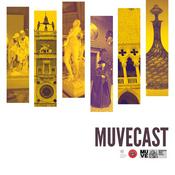729 episodi
- My guest this week is Jen Leban from The Art of Education. For any fellow art teachers listening, check out The Art of Ed Community and I had the priviledge of writing for the AOE magazine last year, so check out my articles. We're kicking off the annual Arts Madness Tournament and I thought there would be no better way to start things off than inviting Jen to join me for a friendly discussion about an artist we have different opinions about. Please join in the fun by weighing in and cast your vote for your favorite artists/artworks in this year's tournament. Each week, half will be eliminated until only 1 remains.
The impressionist movement in late 19th-century art represented a significant shift away from the rigid, representative styles that had dominated the art world for centuries. Claude Monet, a central figure in this movement, began to experiment with color and light in a way that captured the fleeting essence of a scene rather than its exact details. His series of wheat stack paintings, created around 1890, exemplifies this approach. These works were not just about the subject itself, but about how different lighting and weather conditions at different times of the day transformed the appearance of these common agricultural structures. This innovative technique challenged contemporary notions of art and paved the way for future abstract movements.
Monet's wheat stacks were meticulously crafted over months, despite their seemingly rapid, "impressionistic" brushwork. He often worked on multiple canvases simultaneously, switching between them as the light changed in the field to accurately document each subtle variation. This practice was a direct response to the rise of photography, which could capture reality with precision that painters could not match. By focusing on elements that the cameras of the time could not—such as the vibrant play of light and an imaginative use of color—Monet and his peers redefined the role of the artist. Their work, once considered controversial and even "unfinished" by critics, is now celebrated for its revolutionary impact on the history of modern art.
Shoutout and a bit thanks to Podranker for including me on their list of Best Art History Podcasts
Check out my other podcasts Fun Facts Daily | Art Smart | Rainbow Puppy Science Lab
Who ARTed is an Airwave Media Podcast. If you are interested in advertising on this or any other Airwave Media show, email: [email protected]
Learn more about your ad choices. Visit megaphone.fm/adchoices - Herb Williams is an incredibly talented sculptor bringing crayons to a whole new dimension. I sat down to talk to Williams about his background, his artistic influences, and exactly how and why he uses crayons to sculpt. He shared his memories of making art as a child as well as his experience working in a foundry making lost wax castings before he decided to pursue a literal dream of making sculptures out of crayons.
This is an encore presentation. Every January/February, I release daily episodes to refresh everyone's memory on the 64 artists and artworks that will be included in my Arts Madness Tournament held in March. While most of these daily episodes will be reruns, I will continue publishing new episodes on Mondays.
Check out my other podcasts Fun Facts Daily | Art Smart | Rainbow Puppy Science Lab
Who ARTed is an Airwave Media Podcast. If you are interested in advertising on this or any other Airwave Media show, email: [email protected]
Learn more about your ad choices. Visit megaphone.fm/adchoices - Diego Velazques was one of the most significant painters of Spain's Golden Age in the 17th century. He was a master of both portraiture and genre painting, Las Meninas is a sort of mix of both. We see people who seem rather formally dressed by today’s standards, but the subject is also, it was a peak behind the curtain of royal life. Withing the work, the first focal point would be the little girl, the infanta margarita, daughter of the king and queen of spain. She is dramatically lit from the side by light streaming in from the window. The top half of the composition is essentially in shadow, and we see her looking out at us, the viewers. Diego Velazquez included himself in the scene as he stands before his giant canvas. Within this oil on canvas painting, we see a representation of a painter working on canvas. Velazquez also seems to break the fourth as he looks out at the viewer. There is a figure standing in the doorway in the back of the composition. The strong light in the doorway pulls our focus there as a secondary focal point, and that figure seems to be caught in motion and again, he looks out at us, the viewers.
In this episode, I referenced Jan van Eyck's Arnolfini Portrait. To learn more about that, check out my previous episode:
Jan van Eyck | The Arnolfini Portrait
This is an encore presentation. Every January/February, I release daily episodes to refresh everyone's memory on the 64 artists and artworks that will be included in my Arts Madness Tournament held in March. While most of these daily episodes will be reruns, I will continue publishing new episodes on Mondays.
Check out my other podcasts Fun Facts Daily | Art Smart | Rainbow Puppy Science Lab
Who ARTed is an Airwave Media Podcast. If you are interested in advertising on this or any other Airwave Media show, email: [email protected]
Learn more about your ad choices. Visit megaphone.fm/adchoices - One Leonardo da Vinci’s most famous works is not housed in a museum. It is in the Convent of Santa Maria in Milan Italy. It seems totally fitting for a depiction of the last supper was painted on the wall in the convent’s dining hall. Visitors today are often surprised by how enormous the work it. The People are life sized on this massive 15 by 29 foot painting. Another surprising fact is that while people flock to see Leonardo’s work on the wall of the convent, very little if any of what we see there today was actually painted by Leonardo.
This is an encore presentation. Every January/February, I release daily episodes to refresh everyone's memory on the 64 artists and artworks that will be included in my Arts Madness Tournament held in March. While most of these daily episodes will be reruns, I will continue publishing new episodes on Mondays.
Check out my other podcasts Fun Facts Daily | Art Smart | Rainbow Puppy Science Lab
Who ARTed is an Airwave Media Podcast. If you are interested in advertising on this or any other Airwave Media show, email: [email protected]
Learn more about your ad choices. Visit megaphone.fm/adchoices - The Aztec Sun Stone, also known as the Calendar Stone, is a large, round stone carving that represents Aztec mythology and cosmology. It depicts the five consecutive worlds of the sun, with the date 13 Reed marking the start of the fifth and final sun. It was created in the 15th century and is about 3 and a half meters wide, almost a meter thick, and weighs 25 tons. Learn more about the history and symbolism of this famous Aztec piece.
This is an encore presentation. Every January/February, I release daily episodes to refresh everyone's memory on the 64 artists and artworks that will be included in my Arts Madness Tournament held in March. While most of these daily episodes will be reruns, I will continue publishing new episodes on Mondays.
Check out my other podcasts Fun Facts Daily | Art Smart | Rainbow Puppy Science Lab
Who ARTed is an Airwave Media Podcast. If you are interested in advertising on this or any other Airwave Media show, email: [email protected]
Learn more about your ad choices. Visit megaphone.fm/adchoices
Altri podcast di Arte
Podcast di tendenza in Arte
Su Who Arted: Weekly Art History for All Ages
Who Arted is art history and art education for everyone. While most art history podcasts focus on the traditional "fine art" we see in museums around the world, Who ARTed celebrates art in all of its forms and in terms anyone can understand. Each episode tells the story of a different artist and artwork including the traditional big names like Leonardo da Vinci, Pablo Picasso and Andy Warhol along with lesser-known artists working in such diverse media as video game design, dance, the culinary arts, and more. Who Arted is written and produced by an art teacher with the goal of creating a classroom resource that makes art history fun and accessible to everyone. Whether you are cramming for your AP Art History exam, trying to learn a few facts so you can sound smart at fashionable dinner parties, or just looking to hear something with a more positive tone, we’ve got you covered with episodes every Monday and Friday.
Sito web del podcastAscolta Who Arted: Weekly Art History for All Ages, Comodino e molti altri podcast da tutto il mondo con l’applicazione di radio.it

Scarica l'app gratuita radio.it
- Salva le radio e i podcast favoriti
- Streaming via Wi-Fi o Bluetooth
- Supporta Carplay & Android Auto
- Molte altre funzioni dell'app
Scarica l'app gratuita radio.it
- Salva le radio e i podcast favoriti
- Streaming via Wi-Fi o Bluetooth
- Supporta Carplay & Android Auto
- Molte altre funzioni dell'app


Who Arted: Weekly Art History for All Ages
Scansione il codice,
scarica l'app,
ascolta.
scarica l'app,
ascolta.







































